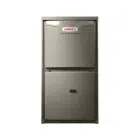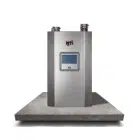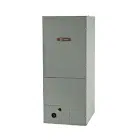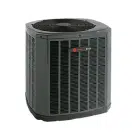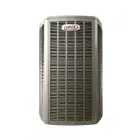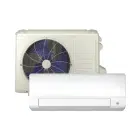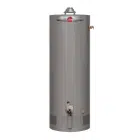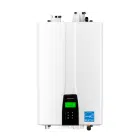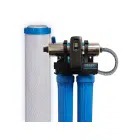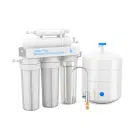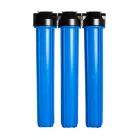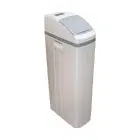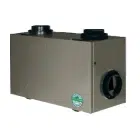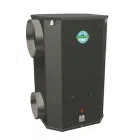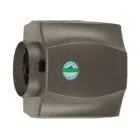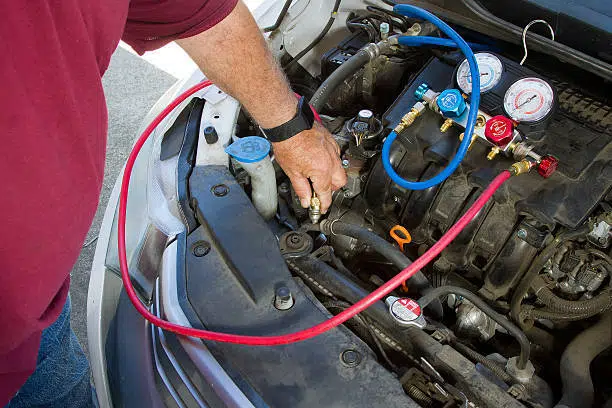
Table of Contents
When it comes to choosing a water heater, options might seem endless. There are traditional tank models, tankless or demand water heaters, and specialized options like solar or heat pump water heaters. If you’re seeking an efficient, space-saving model that provides a steady stream of hot water, tankless water heaters are worth a close look.
This guide walks you through the essentials of tankless water heaters, compares them to traditional tank systems, and helps you decide if this type of water heater suits your home.
What Is a Tankless Water Heater and How Does It Work?
A tankless water heater in Canada, also known as a demand water heater, heats water only when you need it, eliminating the need for a large tank of hot water. Here’s how it operates:
- Activation: When a hot water tap is turned on, cold water flows into the unit, activating its heating element.
- Heating Mechanism: The water passes through a heat exchanger, where it’s instantly heated using gas burners or electric coils. Generally, gas-powered tankless water heaters provide higher flow rates, while electric options are often more budget-friendly.
- Continuous Flow: Once heated, the water flows directly to your faucet or shower, providing hot water on demand as long as the tap remains open.
Since they don’t store hot water, demand water heaters avoid the standby energy loss typical of traditional tank models. For homes with moderate hot water needs, these systems can be 24-34% more efficient.
Feature | Description |
|---|---|
Activation
| Only heats water when the tap is on, reducing standby energy loss.
|
Heating Method
| Uses gas burners or electric coils to heat water instantly as it flows through the unit.
|
Flow Rate
| Provides continuous hot water but is limited by GPM (gallons per minute) capacity.
|
Efficiency
| 24-34% more efficient than traditional water heaters for moderate-use households.
|
Space Requirement
| Compact, wall-mounted design frees up floor space.
|
Maintenance
| Regular descaling is needed in hard water areas to maintain efficiency and lifespan.
|
Lifespan | Lasts up to 20 years with proper maintenance, nearly double the lifespan of a tank heater.
|
Tankless water heaters stand out for their energy efficiency, long lifespan, and on-demand hot water, making them ideal for homes where energy savings and space are priorities.
Tankless vs. Traditional Tank Water Heaters
Understanding the key differences between demand water heaters and traditional tank models can help you decide which best suits your needs. Traditional tank water heaters work by storing and reheating a large reservoir of hot water to maintain a set temperature, which results in “standby” heat loss as the tank reheats throughout the day.
Aspect | Tankless Water Heater | Traditional Tank Water Heater |
|---|---|---|
Heating Method
| Heats water instantly as it flows through the unit (on-demand)
| Stores hot water in a large tank, reheating as needed
|
Energy Efficiency
| More efficient (24-34% for moderate-use households), reduces standby loss
| Less efficient due to standby heat loss, continuously heats stored water
|
Lifespan
| Up to 20 years with proper maintenance
| 8-12 years, shorter lifespan due to constant heating and storage |
Space Requirement
| Compact, wall-mounted, ideal for smaller spaces
| Bulky, requires more space for the storage tank
|
Hot Water Supply
| Continuous hot water, limited only by flow rate (GPM)
| Limited to tank capacity; once depleted, requires recovery time
|
Initial Cost
| Higher upfront cost and installation, may need electrical/gas upgrades
| Lower upfront cost, simpler installation
|
Maintenance
| Regular descaling in hard water areas to prevent mineral buildup
| Requires tank flushing to prevent sediment buildup but less frequently
|
Environmental Impact
| Lower energy consumption, eco-friendly
| Higher energy consumption, larger carbon footprint
|
Tankless demand water heaters generally offer better energy efficiency, longer lifespan, and compact design. However, they also come with higher initial costs and may have limitations on water flow rate compared to traditional tank systems.
Pros of Going Tankless
If you’re considering switching to a tankless water heater, here are the primary benefits to keep in mind:
- Energy Efficiency: Tankless water heaters use 24-34% less energy in households using up to 41 gallons of hot water per day. This increased efficiency can help reduce monthly energy bills, especially in smaller households with modest hot water needs.
- Endless Hot Water: Unlike traditional models, demand water heaters provide a continuous supply of hot water when the flow rate matches your household’s needs. However, high-demand households might consider multiple units or a high-capacity tankless model for simultaneous hot water use.
- Space-Saving Design: Since they don’t require a storage tank, tankless water heaters are compact and often wall-mounted, freeing up floor space in your utility room or garage.
- Longer Lifespan: With regular maintenance, tankless water heaters can last up to 20 years, about twice as long as the typical tank water heater.
- Eco-Friendly: Lower energy consumption means tankless models have a smaller carbon footprint, making them a better choice for environmentally conscious homeowners.
You can find more detailed information in our previous 2024 tankless water heaters guide via the link below.
https://thehvacservice.ca/2024-details-guide-tankless-or-demand-type-water-heaters/
Considerations Before Installing a Tankless Water Heater

While demand water heaters have impressive advantages, there are also some potential downsides:
- Higher Initial Cost: Tankless models have a higher upfront price, typically ranging from $1,200 to $4,250 for installation. Traditional tank water heaters cost between $975 and $2,400. Although tankless systems can offer long-term savings, the initial investment is worth noting.
- Installation Complexity: Setting up a demand water heater might require adjustments to your home’s plumbing, electrical, or gas infrastructure, especially for gas models that need proper ventilation and sufficient gas lines. Consulting a professional HVAC technician can help determine if your home is ready for a tankless water heater.
- Flow Rate Limitations: While tankless water heaters provide on-demand hot water, they can only heat so much at once. Larger households or those with high simultaneous water usage might experience flow limitations. In such cases, you may need a model with a higher GPM (gallons per minute) rating or multiple units.
- Regular Maintenance: Especially in areas with hard water, tankless water heaters need routine descaling and flushing to prevent mineral buildup. This maintenance is essential to keep the system operating at peak efficiency and extend its lifespan.
In our previous article, you can find out how much it costs to install a new tankless water heater in Canada.
Is a Tankless Water Heater Right for Your Home?
To decide if a tankless water heater is right for your home, consider these questions:
- Do you have limited space? Tankless heaters are ideal for small homes or apartments where space is at a premium.
- Is your hot water demand moderate? Tankless water heaters work best for households with consistent but modest hot water needs.
- What’s your budget? While tankless models cost more initially, they offer savings on energy costs over time.
- Are you environmentally focused? Tankless units consume less energy, reducing your household’s carbon footprint.
- Are you in it for the long term? With a longer lifespan, tankless systems are great for homeowners who plan to stay in one place for many years.
If you’re still unsure, our team at HVAC Service Solutions is here to help. We can assess your home’s hot water needs, guide you through the options, and help you decide if a tankless or traditional system best suits your lifestyle.
Conclusion
Tankless water heaters offer an efficient, on-demand hot water solution for those seeking energy savings, a compact design, and an endless supply of hot water. While the higher upfront cost and flow limitations might be considerations, the long-term benefits in energy efficiency, space savings, and longevity make tankless water heaters a worthwhile investment for many households. Reach out to HVAC Service Solutions to explore the best water heating solutions tailored to your home and needs.
Frequent Asked Questions
How does a tankless water heater work?
A tankless water heater heats water on demand, only when you turn on a hot water tap. When activated, cold water flows through a heat exchanger, which heats it instantly via electric coils or gas burners. This on-demand process eliminates standby heat loss typical in traditional tank heaters, where water must be kept hot in a reservoir. Since water is heated only as needed, tankless heaters are more energy-efficient, making them a popular choice for eco-conscious households. However, flow rates can be limited based on the model and your household’s simultaneous hot water needs.
Are tankless water heaters more energy-efficient than traditional ones?
Yes, tankless water heaters are generally more energy-efficient than traditional tank heaters, especially in homes with lower to moderate hot water usage. Since they heat water only when needed, tankless models eliminate standby energy losses associated with constantly reheating a tank of water. According to the U.S. Department of Energy, tankless heaters can be 24-34% more efficient for homes using 41 gallons of water or less daily. This efficiency can translate to noticeable savings on monthly energy bills, although actual savings depend on household hot water habits and heater capacity.
How much does a tankless water heater cost to install?
The cost to install a tankless water heater varies widely, typically ranging from $1,200 to $4,500. Factors that affect the price include the heater’s size, type (gas or electric), installation complexity, and any necessary home upgrades, like larger gas lines or new venting systems. While the initial cost is generally higher than traditional tank models, tankless heaters have a longer lifespan (up to 20 years) and can reduce energy bills over time. It’s recommended to consult with an HVAC professional for an accurate estimate based on your specific home setup.
What is the lifespan of a tankless water heater?
With proper maintenance, tankless water heaters can last up to 20 years or more, which is nearly double the lifespan of a traditional tank water heater (typically around 8-12 years). Regular maintenance, such as descaling in areas with hard water, can help prevent mineral buildup that might otherwise impact efficiency and lifespan. This longevity, combined with energy savings, often makes tankless water heaters a cost-effective long-term investment for homeowners looking to reduce their utility bills and replacement frequency.
Do tankless water heaters provide unlimited hot water?
While tankless water heaters can provide a continuous supply of hot water, the flow rate is limited. For instance, a single unit might be able to heat around 4-8 gallons per minute, depending on the model and type. This is usually enough for one or two simultaneous showers but may be insufficient for multiple showers and appliances running hot water at once. In homes with high simultaneous hot water demands, installing multiple tankless units or a larger-capacity model can help meet those needs.
Are tankless water heaters suitable for large households?
Tankless water heaters can work well in large households, but it depends on the hot water demand and usage patterns. Since tankless units provide hot water on demand, households with high, simultaneous hot water use (e.g., multiple showers and appliances running at once) may need a model with a higher flow rate (GPM) or even multiple units. Alternatively, some families opt for a hybrid system, using a tankless heater alongside a small storage tank to handle peak demand periods effectively.
Can I replace my traditional water heater with a tankless one easily?
Replacing a traditional tank water heater with a tankless model is possible, but it may require some additional adjustments. Tankless systems often require specific venting and may need larger gas lines or electrical upgrades, particularly for gas-powered models. For some homes, especially older ones, these upgrades can increase installation costs. Consulting with a certified HVAC technician can help you determine if your home is ready for a tankless system and what modifications might be necessary for safe installation.
Do tankless water heaters need regular maintenance?
Yes, tankless water heaters require regular maintenance, especially in regions with hard water. Mineral buildup in the heating elements can reduce efficiency over time, so it’s recommended to descale the unit annually to maintain peak performance. Some models include self-cleaning features, but professional maintenance is still beneficial. Following a maintenance schedule not only ensures efficiency but can also extend the lifespan of your tankless water heater, protecting your investment over the long term.
What’s the difference between gas and electric tankless water heaters?
Gas and electric tankless water heaters differ primarily in their energy source, efficiency, and installation requirements. Gas models typically offer higher flow rates and are often better suited for larger households with high water demands, but they require proper ventilation and may need gas line upgrades. Electric tankless units are easier to install and ideal for smaller households, though they may not achieve the same flow rates as gas models. Choosing between gas and electric often comes down to household size, budget, and existing infrastructure.
Are there any downsides to tankless water heaters?
While tankless water heaters have many advantages, there are some potential downsides. They generally have higher upfront costs and may require plumbing or electrical upgrades. Additionally, they have limited flow rates, meaning they might struggle to supply enough hot water for multiple appliances or showers running simultaneously in larger households. Tankless heaters also need regular maintenance to prevent mineral buildup, particularly in areas with hard water. However, for households seeking efficiency and energy savings, these trade-offs are often outweighed by the benefits.
Share

